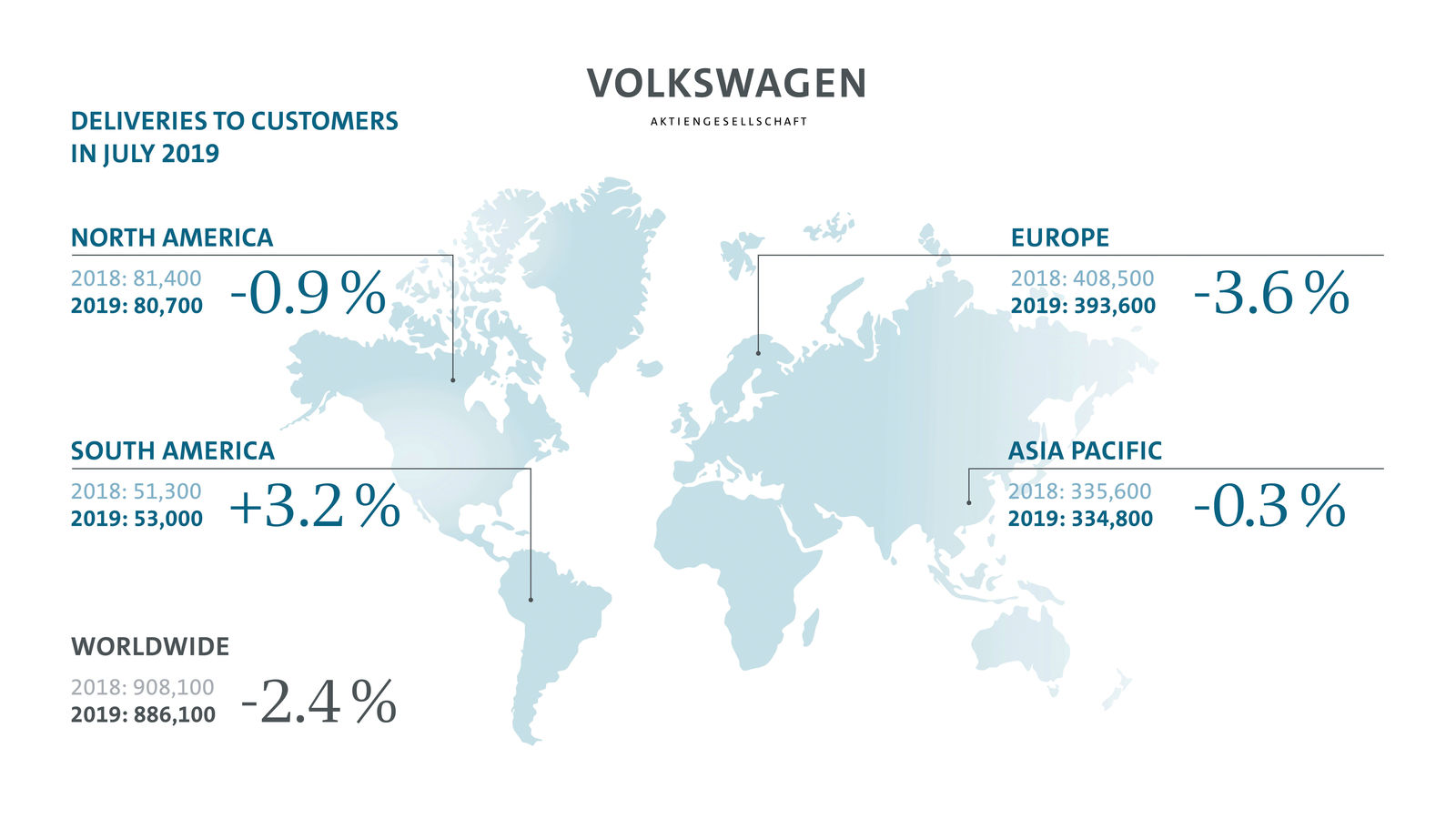Deliveries in the regions in July developed as follows:
In Europe, Volkswagen Group brands delivered a total of 393,600 vehicles, an expected decrease of 3.6 percent compared with the same month last year. Deliveries in July 2018 had been inflated by WLTP effects. In Western Europe, deliveries fell by 4.0 percent to 326,600 vehicles for the same reason. There was also a drop in deliveries in the home market of Germany. Here, 126,300 customers took delivery of a new Group vehicle (-6.3 percent). In Central and Eastern Europe, deliveries were down slightly to 67,000 vehicles (-1.9 percent). In Russia, on the other hand, deliveries once again grew. 18,800 vehicles were handed over to customers in Russia, 2.4 percent more than in July 2018.
In North America, developments in the various markets were once again divergent. All in all, deliveries fell slightly by 0.9 percent compared with the same month last year, to 80,700 vehicles. In the USA, 55,800 vehicles were handed over to customers, a rise of 3.4 percent.In Canada on the other hand, there was a downward trend both in the overall market and in deliveries. There, 9,600 customers took delivery of a new vehicle from a Group brand (-12.8 percent). In Mexico, the general market trend also remained negative as a result of difficult economic conditions. The Group brands were also affected by this trend and delivered 15,300 vehicles (-7.0 percent), which corresponds to an increase in the market share.
Positive impetus came from South America, where 53,000 vehicles were handed over to customers, a rise of 3.2 percent compared with July 2018. This development was driven by Brazil, the largest market in the region. 40,900 customers took delivery of new vehicles there (+14.3 percent). This was more than sufficient to compensate for the marked drop of 29.8 percent to 7,000 vehicles in Argentina as a result of the overall economic climate, which remained challenging.
Deliveries in the Asia-Pacific region were slightly below the figure for July 2018, at 334,800 vehicles (-0.3 percent). In China, the Group’s most important single market, the brands were able to boost their deliveries by 1.3 percent to 313,400 vehicles compared with July 2018, once again increasing their market share.









